Most preppers dream of being able to set themselves up to be 100% self-sufficient. This is the next ultimate step beyond simply being stocked up to the rafters. Where you can source sufficient protein, vegetables, water, and other essentials for living without having to resort to other means.
It sounds great on paper. The idea of pulling water out of a well, tending a beautiful garden and playfully scattering cracked corn for your beloved flock of chickens might sound perfect.
In a previous chapter of my life, I was able to do this for up to 6 months at a time. So, I can tell you that there’s a dark side to being self-sufficient that people don’t always talk about. There’s a lot of back-breaking labour that goes into being self-sufficient, not to mention a fair amount of risk. Even getting started takes a pile of cash that’s often hard to get your hands on.
To help keep you from running blindly into a bucolic nightmare, I thought I’d shine a light on some of the dark spots and trouble areas of being self-sufficient.
The Heavy Workload & Daily Grind
There is a lot of daily grind to being self-sufficient that no one talks about. The tasks change day-to-day, week-to-week, and season-to-season. So, there’s no set routine, like you get with sedentary office jobs.
Spring and fall tend to be the most frenetic, and there’s a real risk of burnout. You have to account for that and plan strategically.
In the spring you have to bust your tail getting everything planted, which could be a challenge if it was a long winter. Then there will be days when you worked tirelessly to get everything in the ground. Only to have a freak frost warning pop up just as you’re getting ready to relax in the evening. Then you have to go out to cover all the tender plants in what a massive garden is ultimately.
In late summer and early fall, you have the reverse problem.
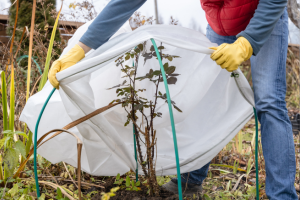 You have to harvest all the things you planted and make sure they’re properly preserved for the long winter ahead. If a freak frost is in the forecast, you have to run back out again and cover all those squash plants and tender vegetables that are on the verge of ripening. What you could do instead is add this easy-to-build cellar to your backyard.
You have to harvest all the things you planted and make sure they’re properly preserved for the long winter ahead. If a freak frost is in the forecast, you have to run back out again and cover all those squash plants and tender vegetables that are on the verge of ripening. What you could do instead is add this easy-to-build cellar to your backyard.
Then when winter does hit, not only do you have to battle snow, wind, and freezing rain. You have to make sure your livestock can take them too. You spend a lot of time in the barn wrestling heavy things like bales of hay and keeping water troughs from freezing.
Get sick, Mother Nature doesn’t care. Sprain an ankle or pull a muscle in your back, and you’ve still got to push through the pain to get the job done.
When you go to a country bar, there’s a reason why you don’t see any fat farmers on the dance floor. So, if you’re out of shape now, you need to get physically fit enough to handle the daily grind of maintaining a self-sufficient homestead.
Loneliness & Lack of a Social Life
The time constraints of all the hard work that goes into being self-sufficient also limit your social interactions. When you get to the end of a long day, you just want to take a shower and melt into a comfortable chair. The last thing you want to do is hop in the truck, drive 20 miles to town, and spend an hour sitting in a bar hoping to run into someone you know.
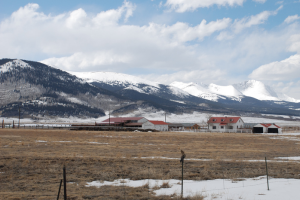 Also, if your homestead is very far out, you might not have good internet access. This can limit the availability of social media, and even phone reception. This lack of social life and persistent loneliness, on top of the exhaustion of so much hard work, is one of the several reasons why farmers have some of the highest suicide rates of any profession.
Also, if your homestead is very far out, you might not have good internet access. This can limit the availability of social media, and even phone reception. This lack of social life and persistent loneliness, on top of the exhaustion of so much hard work, is one of the several reasons why farmers have some of the highest suicide rates of any profession.
So, before you go all in on buying that self-sufficient piece of property, make sure that you have strong social connections. Being married helps and having a group of friends that you can reach out to when you’re feeling down will matter more than you realize.
The Caprices of Nature
Mother nature can be a cruel and unpredictable mistress, which makes self-sufficiency extremely challenging. Especially these days with the effects of climate change assaulting the land at every angle.
This starts with a freak frost striking in spring right after you have all your tender vegetables planted, or your first seedlings are coming up in the cornfield. All it takes is 10 minutes of frost-like conditions to completely decimate a week’s work.
Then in summer, torrential rains or punishing drought can stress crops. Even if it doesn’t result in total crop failure, you might have to put in a staggering amount of work to do things like drain fields, install culverts near the garden, or run irrigation lines.
Then in fall, a freak frost can strike damaging the vegetables you need to ripen to put up for winter. All it takes is one frosty night uncovered, to kill an entire field of vines with 75% ripened winter squash.
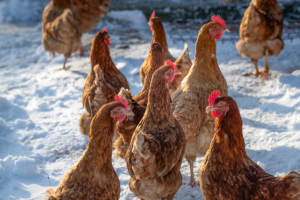 When winter comes, you’ve got all those animals to worry about. A flock of chickens can get frozen solid in a simple uninsulated chicken coop. Pigs and cattle can suffer severe frostbite that leads to life-threatening infections.
When winter comes, you’ve got all those animals to worry about. A flock of chickens can get frozen solid in a simple uninsulated chicken coop. Pigs and cattle can suffer severe frostbite that leads to life-threatening infections.
And if an animal does get sick, or hurt you’ve got to worry about vet bills!
Financial Burden
There are a lot of upfront investments to develop a self-sufficient property. This starts with land, which you won’t be able to get financed by promising the bank payment in milk, eggs, and butternut squash.
So, unless you inherit a piece of land or you’ve been saving up to buy one cash, it means you’ll also need a full-time job to get loan approval. Remember earlier when we talked about all that back-breaking labour? Add an actual career on top of it too!
Related: The Worst States for Living Off Grid
Even if you get the land without a massive mortgage hanging over your head, you’ll still have to sink a sizeable investment in tools, equipment, seeds, livestock, well drilling, irrigation lines, and vet bills. Just to name a few.
If a crop fails, a herd dies, or a flock gets frozen into poultry popsicles, that’s money you lose in the upfront investment as well as money you’d lose out of any potential profit.
Developing a Skillset & Dealing with Knowledge Gaps
If you grew up on a farm, or you have a lot of gardening and animal husbandry experience, becoming self-sufficient can still be a challenge to start up. If you don’t have any authentic experience with these skills, filling the knowledge gap can be a major challenge.
Nature won’t give you the forgiving learning curve that your high school teachers did while you were learning algebra. If you start your seedlings too early or too late, or a freak frost hits, you’re taking a big financial loss. But there is a guy I like that writes about his experience with being self-sufficient for over 40 years. You might find a lot of interesting info and knowledge in here.
If you don’t know how to properly maintain your equipment, the repair costs alone can cripple you. Not to mention all the staggering vet bills that come from sick animals.
You might even think that you can use the internet to figure all that stuff out. Yet the internet isn’t going to tell you that if you have your chicken’s roosting poles too high in the winter birds will get bumblefoot infections from jumping down. It can’t tell you that you can use mouthwash to clear ice from a windshield in an emergency.
Even the most sophisticated AI can’t look at the western horizon and tell you for sure that it’s going to rain tonight. It certainly can’t tell you the right place to grab a steer between the nostrils to get it under control.
Of course, these are just a smidgen of the massive lexicon of skills you need to learn to be truly self-sustainable.
Health & Injury Risks
The physical strain and hard manual labour that goes with self-sustainable living increase your risks of sprains, strains, cuts, scrapes, contusions, lacerations, disastrous falls, and broken bones. All of these are even more likely to happen if you aren’t in good physical condition, or don’t know how to do a lot of jobs safely.
 Of course, these injuries aren’t just about getting hurt. When you’re injured it’s much harder to get the jobs done in the barn and garden.
Of course, these injuries aren’t just about getting hurt. When you’re injured it’s much harder to get the jobs done in the barn and garden.
Yet the chicken manure will still need to be shovelled, and the weeds won’t stop growing just because you’ve got a bad back.
Access to quality health care is also a concern. A remote rural property is by definition far from even a modest clinic, let alone a hospital. If you’re severely injured, it might be too far to get proper medical assistance. I recommend you learn how to take care of at least some basic injuries in your own home. You can find some good tips and tricks from a doctor that had to deal with a lot of patients with very few medical items.
Not to mention a lot of rural community hospitals and clinics don’t provide top-notch care. They rarely have specialists, which can be a concern if you’re at high risk for developing a chronic health condition.
Now that I’ve given you a closer understanding of the dark side of being self-sustainable, let me say this. It’s absolutely worth it. I look back at the hobby farm I built from the ground up as one of my greatest lifetime achievements. I still miss my chickens, massive garden, orchard, and the hard work of butchering animals.
So, if it’s your dream to be at least modestly sustainable, don’t let these challenges kill your ambition. Just go into it with your eyes wide open.
Make sure you are physically fit enough to handle the workload, which will reduce the risk of injuries. Read as much as you can from authentic authors who’ve lived the lifestyle to give yourself a knowledge base. Then do your best to recruit neighbours and people with genuine experience to mentor you.
Even buying a farmer a pitcher of beer on a Saturday night and listening to them talk will give you lessons to help you navigate the dark side of self-sustainable living.
You may also like:
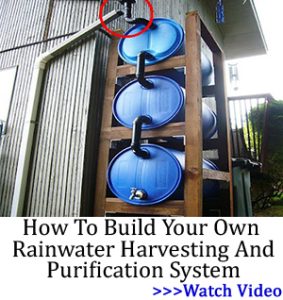 Best DIY Food Projects For When SHTF
Best DIY Food Projects For When SHTF
Why You Should Never Put a Tall Fence Around Your Property (Video)
Deinfluencing You: 14 Items You Should Stop Stockpiling Right Now

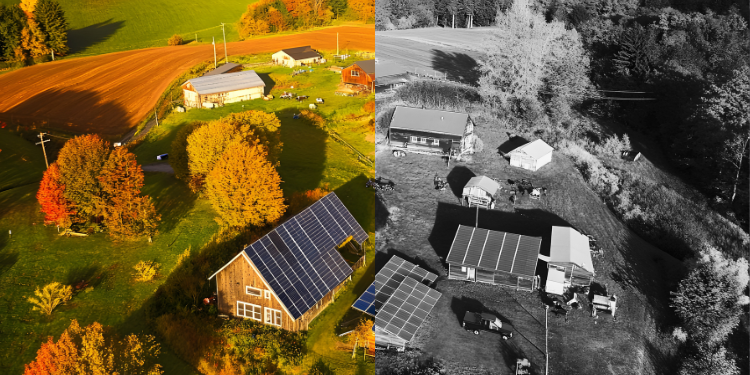





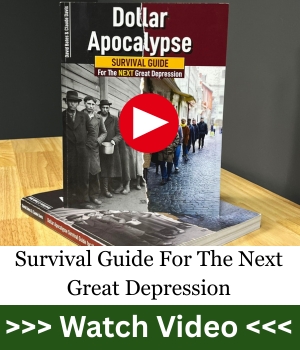



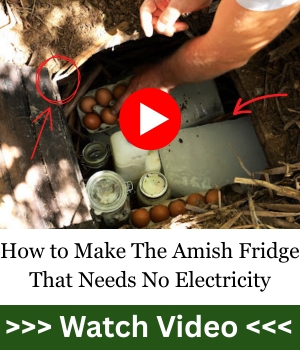








Ya good article….My opinion…..we are all in survival mode right now…instead of ornimental landscaping…I’ve added some kale in and planted some medicine plants. A gun or two…some camping gear….but when i was working i was focused on my job and what i was paid to do the best i could. And obey the laws and Gods laws the best i could….Treat people the way you would like to be treated….ya..da….ya…da..ya…da.watch your emotions…try to be awake as possible…don’t let negative feelings control your discussions…go with flow….Peace
If we all just did that one thing, Rick. Treat others the way we would like to be treated ourselves. Then there would be far less problems in the world. That’s basically what the ten commandments come down to. Treat others the way that you would like to be treated. Don’t steal another’s stuff. And don’t mess around with another’s spouse. Comes down to respect and compassion. Should be very simple things to implement. And yet so many still fail at it. More important than ever these days to be positive and to retain a sense of humour. So much negativity in the world but we can’t allow ourselves to get caught up in it. We need to rise above it. And we can. People are much, much stronger than they think they are. We can move mountains if we but put our minds to it. Just remember our true essence is not people having a spiritual experience on this planet but immensely powerful spiritual beings having a human experience.
Thanks Armin…..I needed that……really …..
I have already done this now for a long time and yup I live in a dead zone. Not my husband but myself, take care of and know when where and how to protect my plants, he’s got a rod pin plate and screws in one leg so he does what he can. Right now I have not seen or heard from anyone since May 2024. Also have to run 8 miles up the road and take care of my mom and sister. Kids and grandkids and great grand babies haven’t seen since first of September. I just keep telling my husband and my family knows, I donated my body, I drop dead they just come get me and hubby gets the insurance. We both are going to be 69, and I just always pray I never have to use what we have except to help others but I know that’s not Gods plan. I just want my family to know where I keep everything. So if I’m gone it’ll be available for them. And thank God I have some very smart kids but only one of the two does what I do. I hunt and fish and husband helps with putting things up.
Yeah, this article is good, but omits the onset of old age. My wife and I are in our late 70’s and it gets touugher each year. Almost to the point of giving it all away to someone else who wants to survive.
You’re very welcome, sir. I like what you had to say.
…. Probably the BEST posting I’ve seen in a longtime !!!!!!!!!!!! Well job done.
THANKS.
Other drawbacks:
– no vacation: plants and animals won’t look after themselves while you are away
– plan for borehole pump failure, leak repair, filter cartdrigge. You need spare and know how to fix all these
– plan for solar and inverter failure. You need to know how to fix all these yourself and have spare
– no electricity if your system goes down
– no water if your water system goes down
– relationship strain: hard to explain to spend hours to cultivate 50 peny worth of carrots.
– schools and secondary schools for children spare in countryside
– children friends: not many in countryside
It is nearly impossible to be 100% self sufficient, but one can aim to get to 60% to 80% maybe. For example, very few could repair their smartphone or upgrade it. This means that you will need a source of income as well to pay for what you cannot do yourself and pay for tools/solar panels…
If you have the grid now, there are YouTube videos on fixing a phone. If not get some long distance walkie talkies because we use them. I don’t know how safe Starlink will be later on. I have to use my phone’s cellular data to even do this and go outside at times .
Being self sufficient is VERY hard work and I don’t know how many “modern” people could actually make a go of it. Patara and her husband of Appalachian Homestead have actually managed to be successful at running a farm, But she’s a unique individual. She has lots of energy and she’s very determined. And they’ve been doing it for a number of years now. She works more than a full day every day and it’s very hard work even for someone like her. People romanticize being self sufficient but the reality is quite different. And I don’t think most people are ready to face that reality. I think the better option for most people is to be prepared as best they can. We’ve had enough warnings and we’ve had enough time to become prepared. People can still start preparing even at this late juncture but now of course it’s much more expensive to do so. Good luck to all of you and I hope to see all of you on the other side of this mess.
Ok, well you actually succeeded in talking me completely out of ever trying it. Not sure if that was your point, but it worked. I’ll just have to stick to stockpiling. and prepping.
That was not my intent, Nelson. But homesteading IS very, very hard. And the start up costs ARE high. And it’s best to start when you’re younger rather than older and you still have the energy to succeed at it. The time for me to start homesteading is over. I’m in my 75th year. A retired senior on a fixed income. The best I can do is to try and be as prepared as I can. I’m not as prepared as I would like to be and it always comes down to money. Or the lack thereof. As an example in about the last 5 years or so my house insurance has tripled. That takes a huge bite out of my income. Not that long ago I used to be able to buy a week’s worth of groceries for no more than $50 bucks. And that bought a LOT of groceries. Now I can’t get out of a grocery store without paying at least $100 bucks and that doesn’t get me much anymore. Suffice to say I keep a sharp eye out for all the specials. The worst “offenders” are meat and dairy. I’m still a dedicated meat eater. I CAN make do with rice and beans every day if I had to but it’s not quite as….”satisfying”. 😉 Beef prices are outrageous. The best I’ve been able to find lately are about $10/lb. That puts it out of my reach. I actually have to plan and budget if I even want to buy a modest sized roast. My body keeps changing and I find I have to keep adapting to the changes. I try my best to keep exercising every day but it’s becoming more difficult and recovery is starting to take much longer. If we get to the point where things become very real and a lot of poop starts hitting the fan I have no choice but to bug in.
Foxfire books!
If you don’t know, search them out.
Get the entire series if you can.
If you plan ahead for unforeseen circumstances, when they do happen, it is not a catastrophe.
Permanent row cover posts and such can be time savers when you need to cover something.
Many animals are self sufficient. If you have a barn, some will go in there without prodding.
Chicken coop – put it on wheels so you can move it every month.
Well insulated and protected from predators is a must.
Chickens can overheat too!
Electric heaters are nice if they don’t break or you lose power.
Maybe install some solar equipment on the coop?
In a pinch, you could heat rocks and put them in or under the coop.
One big worry is not frost but pests devouring your plants.
Example is the tomato hornworm – it can strip a tomato plant in a single night.
And they WILL eat tomatoes if there are no leaves.
Squash vine borer is another bad one.
Oh and beware of blister beetles. If as few as 6 are in a bale of hay that a horse eats, it can kill a horse!
Having a system of help is great, but you cannot protect everything from everything else all the time.
Solar on your roof – just wait till you get a good snow….
Article did not say anything about dental issues. One bad tooth problem and you can be out of commission until a Dentist can treat you – IF you can ever afford or find one when SHTF,
One might want 4-6 contingency plans in case of problems.
so Eric Beuning, you say you miss your chickens. what do you mean? did something to them? did you loose your homestead? what happened?
This is why it takes a community. Look at the Amish and similar communities. Get together with people of various skills and expertise. Set up such a community and who knows what human ingenuity can create.
I look at the Hippy community set up in Byron Bay, northern New South Wales, just near the Queensland border (Australia) in the 1960s. They went there to drop-out. Today they now have very successful businesses providing high quality, premium foods Australia wide. Organic sour-krauts; organic broths of various kinds; organic milk products like ghee, yogurts, cheeses; to name just a few that come to mind. As well as a goods manufacturing sector that trades to a very successful tourist industry. And the surfing is great.
But it took a community. There is no limit to human imagination, ingenuity and creation.
Thank you Eric for giving everyone a good dose of reality. I grew up on a farm in the 1950s and it all rings very true. We weren’t trying to be totally self sufficient just the normal routine of caring for crops and animals but I agree completely, its long days of hard work and no days off. Then factor in a hail storm that wipes out the 80 acres of wheat that would have been the cash income for the whole year, you better have some reserves somewhere. Dad literally worked himself to a early death (first heart attack at age 45). But, both of my parents were of the opinion that you need to own yourself some ground that way you can grow some food and not go hungry like they had seen others face during the depression.
Thanks everyone for the good comments that are staying close to the subject at hand.
Ahh, now this article and comments rate way up there on the prepper scale… I personally have been doing this since 1999, I’m now 75… 2yrs ago I finally moved from a very large metromess to an old, 80yr old, farm house on a few acres… Not a rude awakening, since I grew up on an orchard farm way down South, and actually did my high schooling in this AO… Here, my biggest enemy is not just my age and health, but my procrastination…LOL… Its me and a dog, if I don’t do it, it don’t get done, and there are days that I find myself almost in a panic mode to catch up to the chores I had put off till tomorrow… I have stocks that are approaching their 25yr shelf life and are about to rotate them out onto my dinner table.. Lucky for me I’m only a few miles North of a city of 18,000 residents and a county seat.. just down the road there’s a farmers market that goes away during the Winter month, duh… I need to establish a raised garden like I had in the big city, but that takes times, and energy that I sometimes don’t have… Being out here, I’m finding is a little bit tougher than I truly expecdted… and I’m slow to adjust, Hell, I’m still unpacking and setting up my work shop and now another year has passed.. It’s tough, saying its hard isn’t enough of an adjective to cover prepping… and still surviving the day to day duties of a semi normal life.. I promised myself 55yrs ago, that if I made it back home I would live a peaceful serene life…well, I’ve made it, finally, hahaha, and finding out that peace and serenity don’t come easy and cheap… Again, a very good article and I apologize for the lengthy comment.. I dont get to talk to foks much, so when I do I find that I sometimes get carried away… Live long and prosper…
For the first time in my life I’ve had to take civilian survival dead serious. Before I flirted with the inconveniences of life. little things such as time limited interruption of power, water, sewer, cell service, internet, food supply chain etc. Survival in it’s truest sense ain’t easy. You can make it a little easier by playing the “what if game” Then developing your strategies. Write out your solutions and put them in a “What If Notebook” For each solution have a backup plan. Review these plans every year. Then over time gather your resources. I would first concentrate on Food, Water, Shelter, and clothing.
Sounds like a lot of us have now lived long enough to understand Psalm 90, the official Psalm of the aging Prepper.
There’s more that might be added to these downsides. That’s maybe. I only said might. But I DO mean let’s hope not. But a very possible additional add on is old age. You might have old folks who need a little help since they can no longer do what they used to could. When you get old, same thing. You need younguns comin’ up learnin’ the ropes who can help you, too.
And being self sufficient in the 21st century ain’t quite what it was in the 18th., let alone 19th. century. How ’bout pre 18th. century? NO MATTER HOW SELF SUFFICIENT WE ARE AND NO MATTER HOW SERIOUS WE ARE ABOUT IT, we must still take it with a grain of salt, meaning, it’s not a permanent necessity like it was centuries ago when nobody knew better and had never had better. No matter how good we might be at it, can ANYBODY bear it permanently when we know better and have had better?
The human specie CAN’T ever go back to a pre-industrial way of life, and no individual can. That’s why if the whole of civilization is ever seriously threatened, anybody can morally and legally take it over by brute physical force and remake it for himself and for whoever cares to join him on civilized terms, and hell with anybody else. They won’t be able to stop them. This, in such circumstances, IS serious and a PERMANENT necessity and is not to be taken with a grain of salt. Civilization must proceed and advance forever, AS CIVILIZATION, not as a criminal regime of slave drivers and slaves. Civilization means rights and freedom under law and government.
Self sufficiency is only a stop gap for a time, in case it’s needed, until WE PUT things back to normal. We won’t wait for things to get back to normal. We’ll PUT then back to normal. How? Guess how. Yes. That’s how.
Yeah, this article is good, but omits the onset of old age. My wife and I are in our late 70’s and it gets touugher each year. Almost to the point of giving it all away to someone else who wants to survive.
Wow pretty tough look at homesteading. I am a 65 year old woman with a 69 year old husband. I have had a major back surgery and I have neuropathy. I have chickens and a huge garden that I take care of by myself. We get quite a bit of snow in the winter. I guess that I look at my work differently than you do. I enjoy the work. Yes lots of hard work but worth it in my opinion.